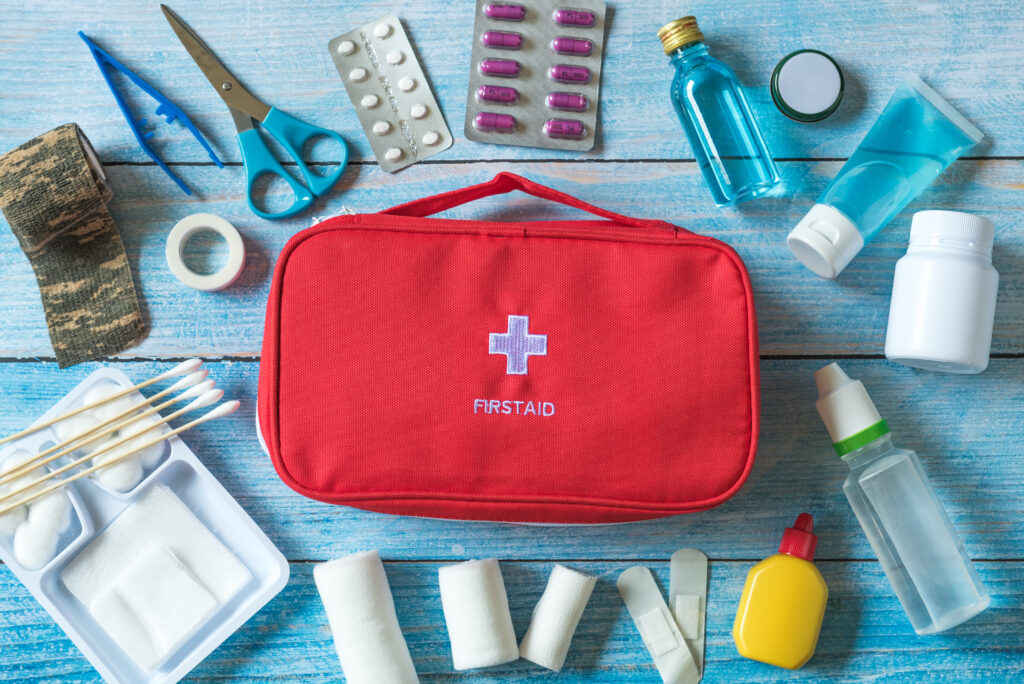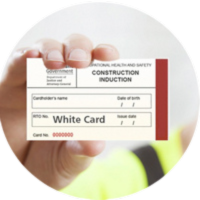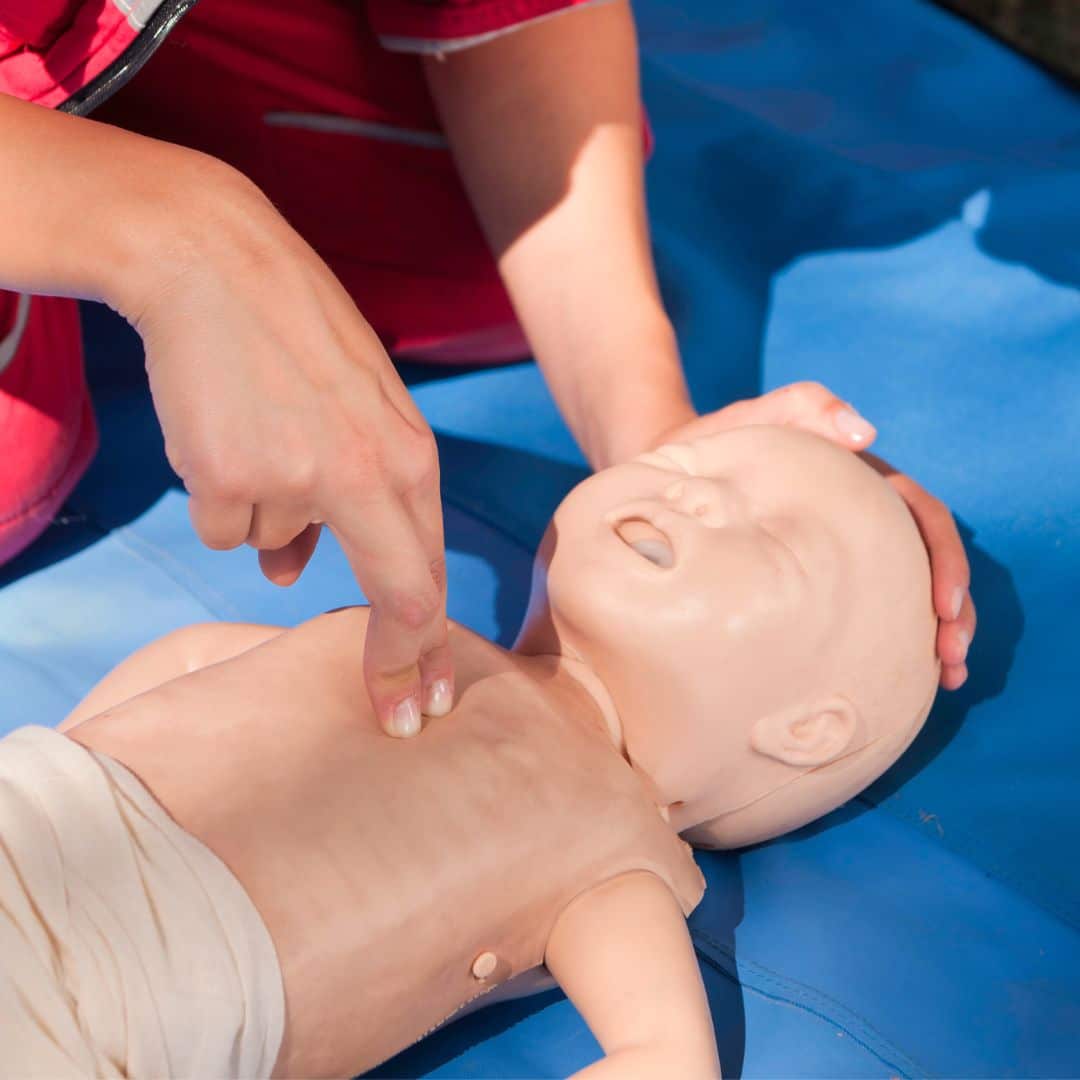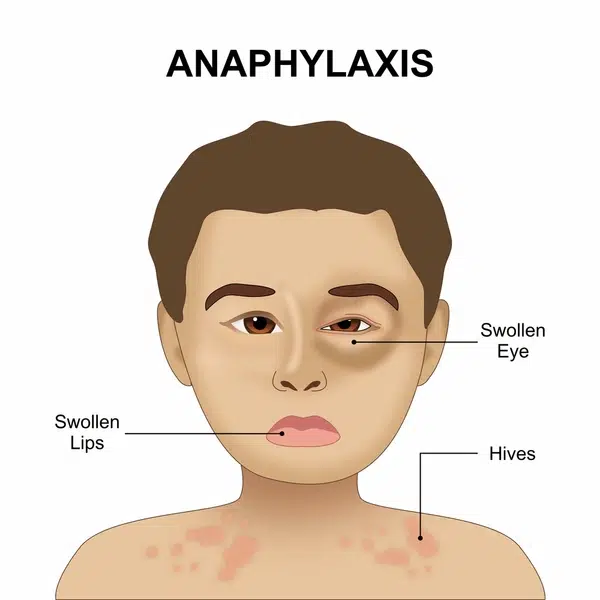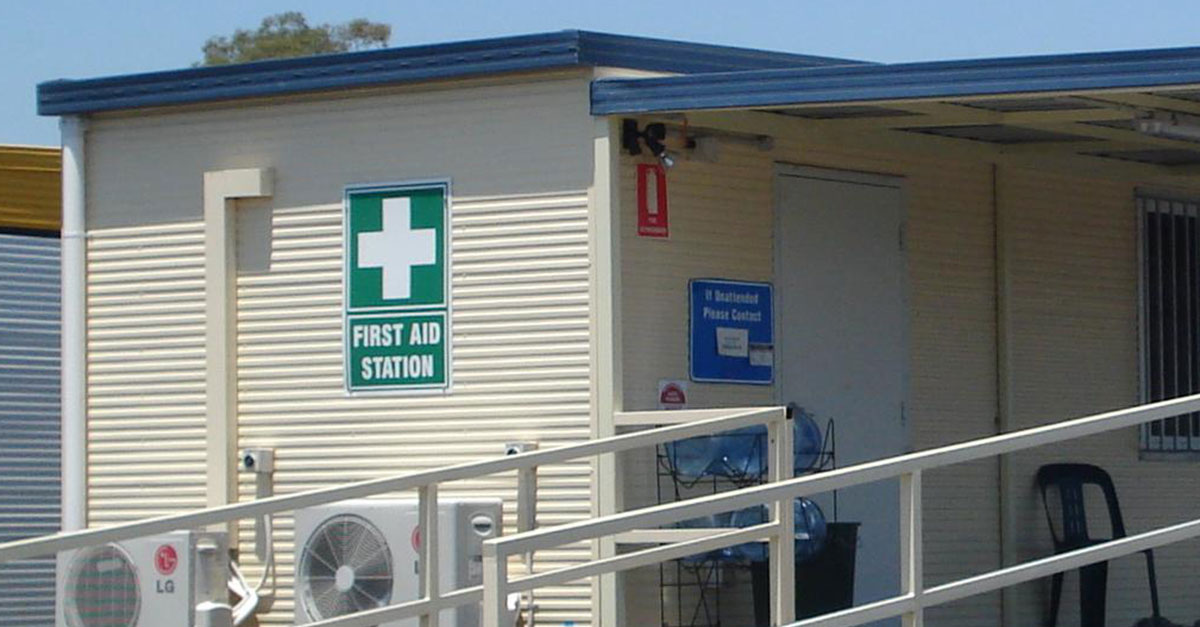Medical emergencies don’t wait for the right time or place. They can happen at home, in the workplace, or while travelling. For Adelaide families and businesses, having a properly stocked first aid kit isn’t just useful — it’s essential. A well-prepared emergency kit ensures you can treat minor injuries, manage sudden medical issues, and potentially save lives until professional medical help arrives.
South Australian regulations also mean that businesses must meet specific first aid requirements to comply with workplace safety laws. Homes and families, while not legally obligated, still benefit from having accessible first aid supplies tailored to common risks such as cuts, burns, insect bites, and heat-related illness.
Be prepared — enrol in a nationally recognised first aid course in Adelaide with First Aid Pro and learn how to use your kit effectively.
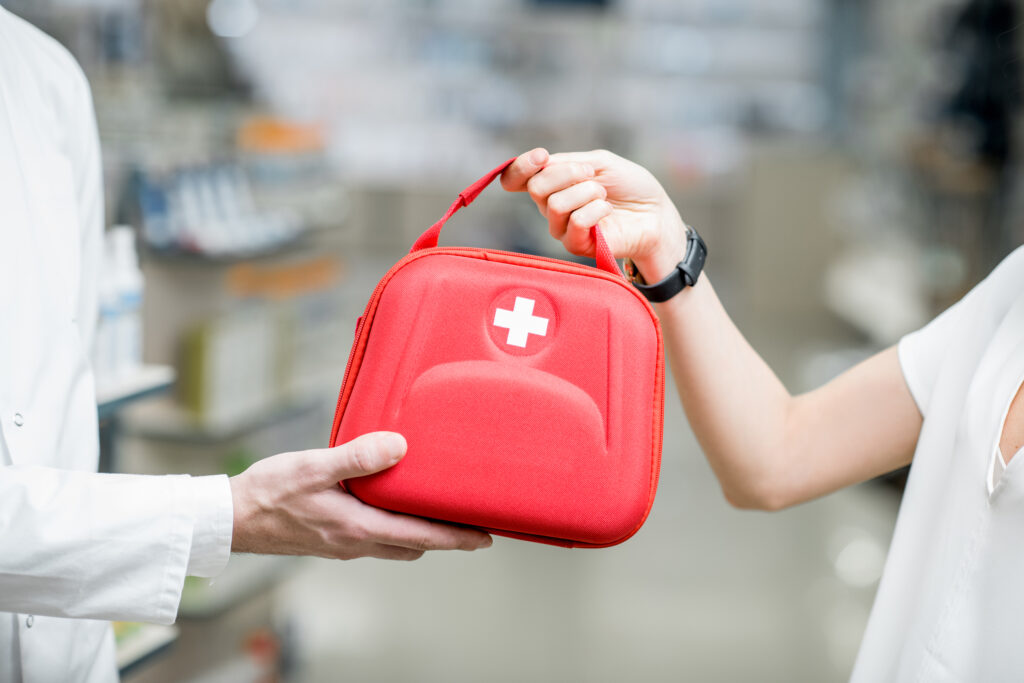
Key Takeaways
- A first aid kit is essential for every Adelaide home, workplace, and vehicle.
- SafeWork SA requires workplaces to maintain compliant kits that comply with the Model Code of Practice and guidelines outlined by Safe Work Australia,
- Adelaide’s climate and risks — heat, bushfires, outdoor activities — demand specific first aid supplies.
- Regular inspections and training ensure your kit remains effective.
- Certified first aid training maximises the value of your emergency kit.
Australian Standard First Aid Kits: Legal & Safety Requirements in South Australia
In South Australia, SafeWork SA enforces compliance under the Work Health and Safety Act 2011. Employers must provide accessible, adequately-stocked first aid kits appropriate for the workforce size and workplace risks, and requirements differ between low-risk environments like offices and high-risk areas such as construction sites.
Regular inspections, staff training, and documentation are essential for ongoing compliance, and failure to maintain suitable first aid facilities may result in legal penalties and increased liability during workplace incidents.
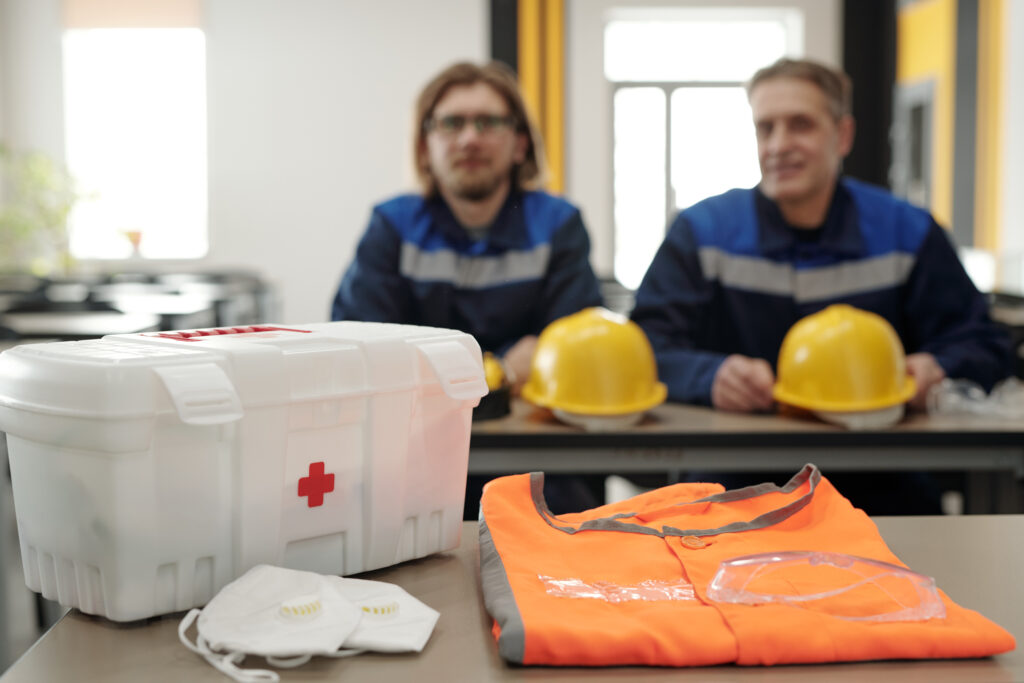
Workplace First Aid Kit Requirements in Adelaide
Office and Retail Environments
Adelaide offices, retail shops, and other low-risk workplaces still need properly stocked first aid kits. These environments deal mainly with cuts, burns, fainting, headaches, and allergic reactions. A basic kit should contain adhesive bandages, antiseptic wipes, pain relief tablets, gloves, CPR masks, and cold packs.
While smaller in scale, these workplaces must still follow inspection schedules to ensure compliance with SafeWork SA requirements.
Industrial and High-Risk Workplaces
For construction, mining, and manufacturing — all significant industries in South Australia — a basic kit is not enough. These workplaces face risks like heavy machinery accidents, burns, chemical exposure, and snake or spider bites, particularly in regional areas.
Industrial kits often include pressure bandages for severe bleeding, specialised burn dressings, eyewash bottles, splints, and thermal blankets. They also require multiple kits located throughout the site, along with trained responders always available during operating hours.
Protect your workplace and meet SafeWork SA requirements — enrol your team in Adelaide first aid training with First Aid Pro.
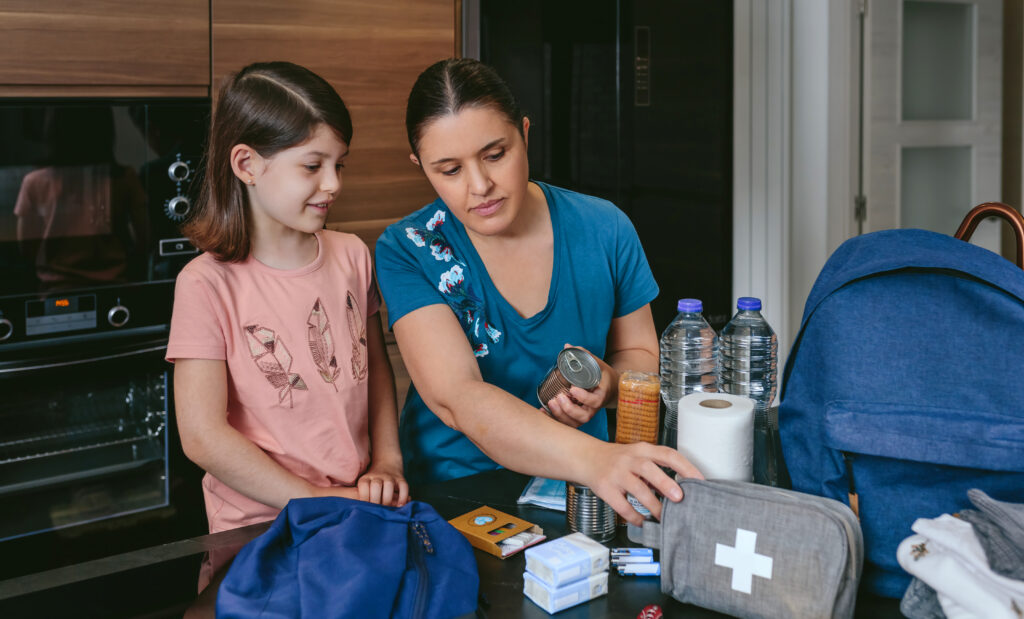
Home First Aid Kits for Adelaide Families
Basic Household Essentials
Every Adelaide household should have a first aid kit designed to treat common injuries. Adhesive bandages, antiseptic wipes, sterile gauze pads, burn gel, and basic pain relief such as paracetamol or ibuprofen should form the core. Add gloves, scissors, tweezers, and a digital thermometer to round out a safe and reliable home kit.
Kits should be stored out of reach of children but remain easily accessible for adults. It’s also a good idea to include emergency contacts and relevant medical information alongside your supplies.
Enhanced Kits for Active Families
South Australia’s lifestyle means families are often outdoors — at the beach, playing sport, or camping in the bush. Enhanced kits for active families may include cold packs, elastic bandages for sprains, insect repellent, sunscreen, and even a snake bite bandage for trips into regional areas. These additions help deal with the extra risks associated with Adelaide’s hot summers and outdoor activities.
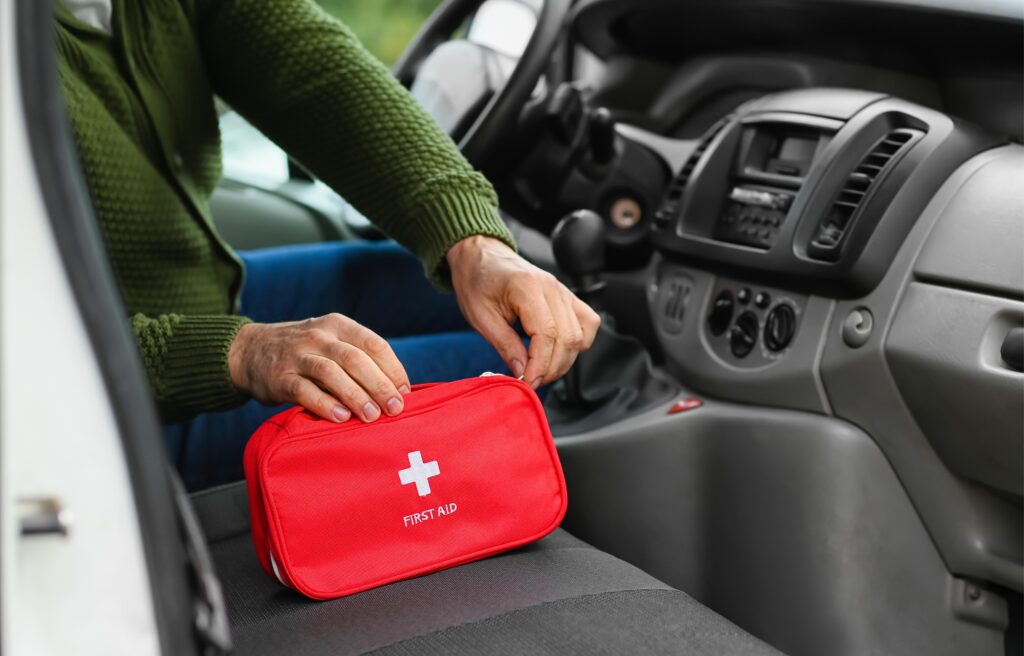
Vehicle First Aid Kits: Road & Outback Preparedness
Commercial vehicles in South Australia must legally carry a first aid kit. Heavy vehicles, buses, and transport fleets are subject to strict inspection and compliance rules.
For private drivers, carrying a vehicle kit is not mandatory but is highly recommended, especially when travelling outside Adelaide into regional or outback areas. Long drives to the Flinders Ranges or Eyre Peninsula can mean extended wait times for emergency services. Having a vehicle kit with burn dressings, pressure bandages, antiseptic solution, and thermal blankets could make all the difference in an emergency.
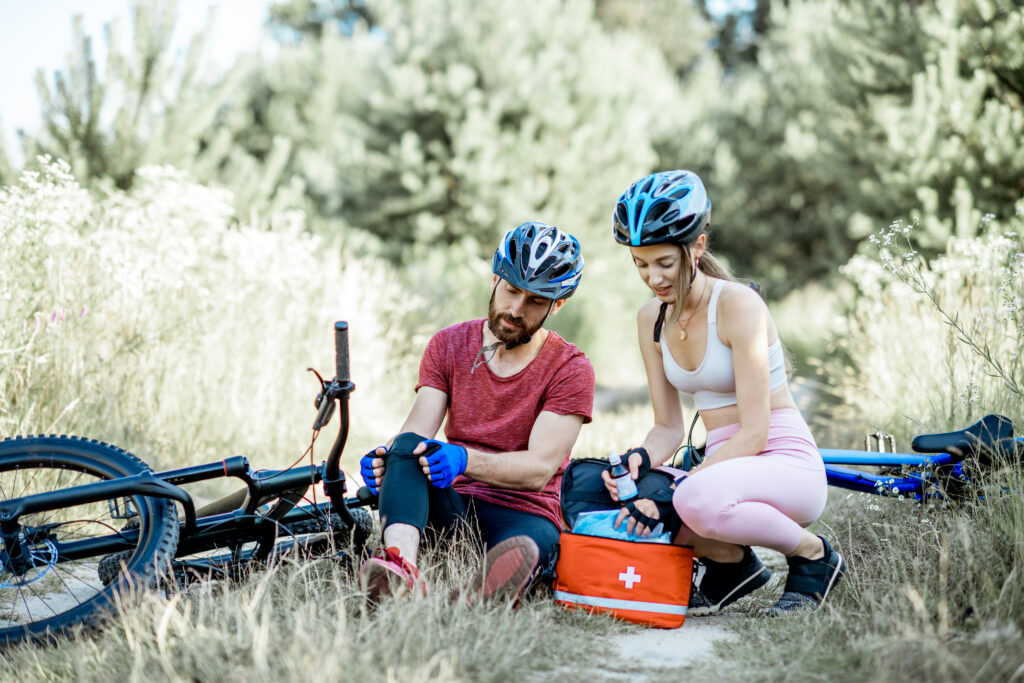
Outdoor & Bushfire First Aid Supplies in South Australia
Bushwalking and Camping Kits
South Australia is home to national parks, bushland, and plenty of camping grounds. Outdoor kits need to be lightweight, waterproof, and ready for remote use. Snake bite kits, splints, and additional bandages are vital in case of accidents in the bush.
Bushfire Preparedness
Adelaide Hills and regional SA residents know the risk of bushfires all too well. A household first aid kit should include burn dressings, sterile saline, thermal blankets, and face masks to help cope with smoke inhalation and burns in emergency situations.
Water Safety Kits
For those enjoying the beaches, rivers, or lakes near Adelaide, marine-specific kits are useful. These should include treatments for jellyfish stings, waterproof dressings, and resuscitation masks.
✅ First Aid Kit Essentials – Adelaide Checklist
Keep your Adelaide home, workplace, vehicle, and outdoor adventures safe. Use this checklist to ensure your first aid kit is always stocked and compliant with South Australian standards.
🏠 Home Essentials
- • Adhesive bandages (various sizes)
- • Antiseptic wipes & solution
- • Gauze pads & non-adherent dressings
- • Scissors, tweezers, thermometer
- • Burn gel & sterile saline
- • Pain relief (paracetamol, ibuprofen)
🏢 Workplace Kits May Add
- • Disposable gloves & CPR mask
- • Triangular & elastic bandages
- • Pressure bandage for bleeding
- • Emergency blanket
- • Eye wash / saline pods
- • WHS-compliant first aid manual
🚗 Vehicle & Outback Travel
- • Compact, heat-resistant kit box
- • Burn dressings & antiseptic solution
- • Pressure immobilisation bandage (snake bite)
- • Thermal blanket
- • Torch & emergency contact list
- • Extra water & electrolyte sachets
🌳 Outdoor & Bushfire Readiness
- • Snake & spider bite bandages
- • Waterproof dressings & storage
- • Insect repellent & sunscreen
- • Burn dressings & face masks (smoke)
- • Cold packs & elastic bandages
- • Emergency communication device (if remote)
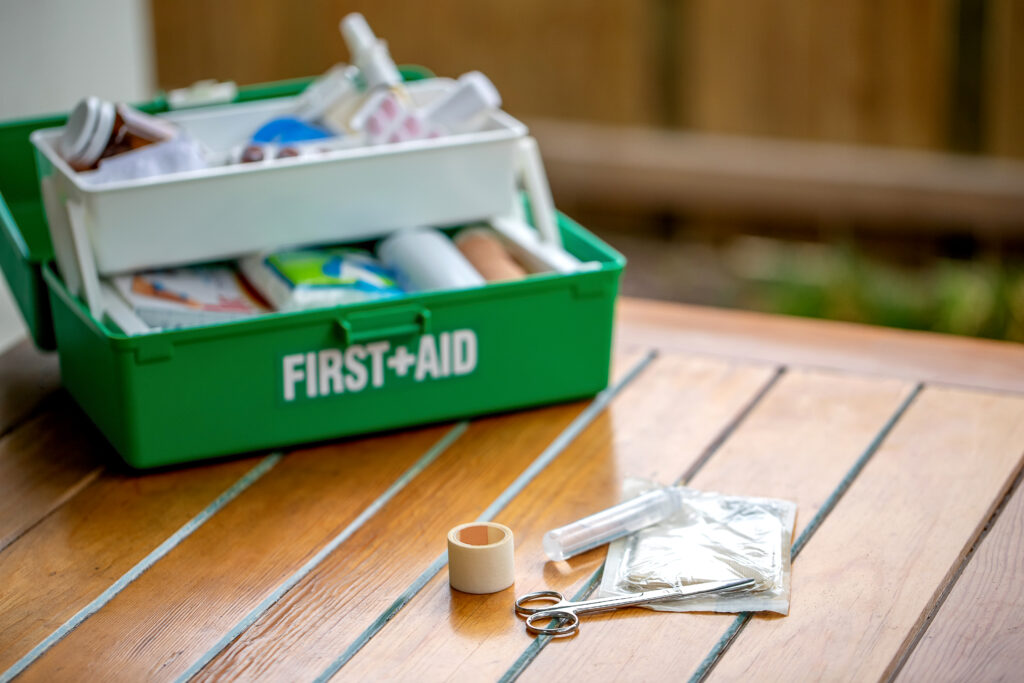
🧰 Choosing the Right Size and Type of First Aid Kit
Not all kits are created equal. First aid kits are classified by how many people they serve and the environment they’re used in. Selecting the correct kit size ensures you’re prepared without overspending.
For one or two people; ideal for travel and solo activities.
- Compact & lightweight
- Essentials for minor cuts, scrapes, bites
For homes and small groups; covers day-to-day household injuries.
- Broader range of dressings & antiseptics
- Tools: scissors, tweezers, thermometer, gloves
For low-risk sites up to ~25 people.
- Adhesive/triangular/elastic bandages
- CPR mask, gloves, cold packs, eye saline
For larger or higher-risk workplaces (typically 25–50+ people).
- Expanded dressings & burn care
- Splints, additional PPE, multiple CPR masks
For construction/heavy industry with specialised risks.
- Pressure dressings, burn dressings, eyewash
- Snake/spider bite bandages (as relevant), thermal blankets

Maintaining First Aid Kits in Adelaide’s Climate
Adelaide’s hot, dry summers can shorten the lifespan of medical supplies. Items like antiseptic solutions, adhesive dressings, and medications can deteriorate faster in extreme heat.
Monthly inspections should be carried out to spot obvious issues, while more detailed quarterly checks should confirm expiry dates and stock levels. A full kit replacement every 12 months is recommended to ensure compliance and reliability.
Training is just as important as equipment. Keeping up to date with first aid training ensures you can confidently use every item in your kit.
Sourcing First Aid Kits in Adelaide
Buying from certified Australian suppliers ensures your first aid kit meets SafeWork SA compliance requirements. Local Adelaide suppliers and subscription services can provide scheduled replacements, ensuring your kit is always current.
Bulk purchasing common items like bandages and antiseptic wipes helps reduce costs, particularly for workplaces with multiple sites.
Stay Prepared with Adelaide’s First Aid Experts
Whether at home, at work, or outdoors, a properly stocked first aid kit can mean the difference between a minor injury and a medical emergency. Adelaide families and businesses must consider not just compliance, but also the unique risks posed by South Australia’s environment.
Take the next step — book your nationally recognised Adelaide first aid course with First Aid Pro and be confident in any emergency.
References
Healthdirect Australia: First Aid Kits
Safe Work Australia: Code of Practice
Better Health Channel (Victoria Government): First Aid Kits
Frequently Asked Questions
Are South Australian workplaces legally required to have a first aid kit?
Yes. Under the WHS Act 2011, workplaces must provide appropriate first aid facilities and kits for the number of staff and range and level of risks.
What should I include in a vehicle kit for Adelaide outback travel?
Vehicle kits should include pressure bandages, burn dressings, antiseptic solution, gloves, thermal blankets, snakebite kits and extra water.
How do bushfire risks affect first aid kit contents in Adelaide homes?
Bushfire-prone areas should add burn dressings, thermal blankets, and smoke masks to household kits.
What are the minimum kit requirements under SafeWork SA?
At minimum, kits must include wound care supplies, antiseptic wipes, gloves, dressings, and equipment proportional to workplace risk.
How often should first aid kits be checked in Adelaide’s hot climate?
Visual checks monthly, detailed checks quarterly, and a full replacement annually to account for heat-related deterioration.

